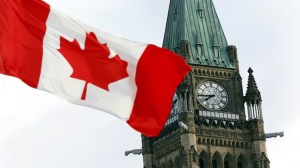The G20 is set to make a major headway in coordinated global regulation of crypto assets and finalise an action plan for financial inclusion, besides ensuring further progress in debt relief for vulnerable countries, a senior government official said on Wednesday.
The 18th Leaders’ Summit to be held here on September 9-10 will likely lay road map for actions to be taken by each country, the International Monetary Fund, Financial Stability Board (FSB) and standard-setting bodies in crypto regulation, the official added. The G20 Finance Track has already endorsed as many as ten deliverables including taking forward financing reforms in multilateral development institutions that could generate $200 billion in additional lending headroom over the next decade.
However, key areas, where consensus has eluded so far include climate-resilient debt packages for stressed countries, as the plan is being opposed by China. Similarly, Russia’s opposition is preventing the description of Ukraine situation as “war.” Issues of global food insecurity also remain unresolved.
“The IMF and FSB have laid down the synthesis paper on cryptos. The building blocks (minimum action to be taken by each country) have been laid and a comprehensive road map almost arrived at, but these are subject to Leaders’ endorsement,” the source said. India has prepared a presidential note on cryptocurrency that will include a summary of the IMF and FSB reports.
India’s Presidency was instrumental in bringing the issue of creating some sort of international framework for crypto regulation which poses risks to the macro-economic financial stability of countries as they are outside the purview of regulation. The group of countries, which represents 85% of the world GDP, had endorsed in July the Financial Stability Board’s high-level recommendations for the regulation, supervision and oversight of crypto-assets activities and markets and of global stablecoin arrangements. “Somewhere there should be a common template and that template should consist of certain measures that are well defined,” the source added.
Another strong outcome of the Indian Presidency is to take forward the implementation of the Capital Adequacy Framework (CAF) for MDBs that could yield $200 billion in additional funding over a decade. India and the US have been working closely for the implementation of CAF by MDBs through greater leveraging of capital and mobilisation of resources from the market. After fears of some countries that they would have to contribute more to MDBs were dispelled, the CAF reform has been accepted by G20 countries.
The G20 Finance Track has almost finalised the debt vulnerability framework for restructuring the debt of Zambia, Ghana and Ethiopia under the Common Framework and that of Sri Lanka outside the framework. The G20 finance ministers have prepared a report on macro eco risks stemming from climate change. The report identifies climate risks and includes pricing (carbon taxes) and non-pricing tools to tackle climate change. Some countries are only using pricing/taxes on commodities which are produced through use of fossil fuel. “The transition has to be inclusive,” the source said.
Following Saudi Arabia’s objection to the use of the phrase ‘just (fair) climate change’, India has changed it to ‘just transition’ to accommodate the Gulf country whose economy centres around fossil fuel. India has also made considerable progress in pushing a Sustainable Development Goal (SDG) aligned financing framework.
The G20 Expert Group set up by India estimated an additional $3 trillion in annual spending requirements by 2030 for SDGs and other global challenges This includes $1.8 trillion for climate action, a four-fold increase in adaptation, resilience and mitigation compared to 2019. About $1.2 trillion needed in additional spending to attain other SDGs, including a 75% increase in health and education. MDBs should provide an incremental $260 billion of the additional annual official financing, of which $200 billion in non-concessional lending, it said.









